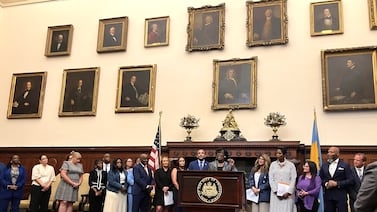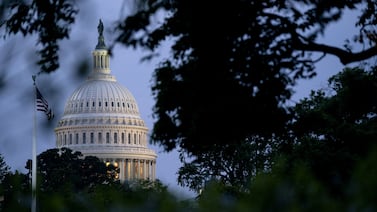Sign up for Chalkbeat Indiana’s free daily newsletter to keep up with Indianapolis Public Schools, Marion County’s township districts, and statewide education news.
Indianapolis Public Schools will host a series of “community conversations” to hear feedback about the state’s recent legislative session in which lawmakers created the Indianapolis Local Education Alliance.
The district said in a press release on Friday that the meetings will collect insight that will inform how the district will engage with the ILEA, which will offer recommendations for lawmakers on how the district and charter schools can share transportation and facility resources. The meetings are open to families, IPS staff, and other community members.
The session, in which legislators also redirected some property tax revenue from the district to charter schools, helped create unprecedented acrimony between supporters of IPS and charter backers.
The time and location of the meetings are as follows:
- 6-8 p.m. on June 3 at Lew Wallace School 107.
- 6-8 p.m. on June 5 at James Whitcomb Riley School 43.
- 6-8 p.m. on June 11 at James Russell Lowell School 51.
- 6-8 p.m. on June 17 at William McKinley School 39.
IPS school board members will host each conversation, and the district will also give a presentation on the history of IPS and the ILEA, the district said in the release. Attendees will also break out into smaller group discussions.
The public can register to attend these meetings at www.myips.org.
Amelia Pak-Harvey covers Indianapolis and Lawrence Township schools for Chalkbeat Indiana. Contact Amelia at apak-harvey@chalkbeat.org.






